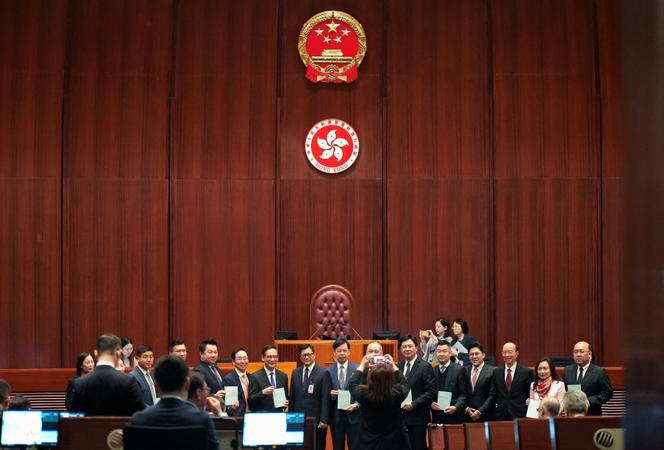


After more than 20 years of procrastination and dithering over the thorny issue of Article 23 of the Basic Law, Hong Kong's mini-constitution, Chief Executive John Lee has succeeded in passing the Safeguarding National Security Ordinance in record time. On Tuesday, the Legislative Council of the Hong Kong Special Administrative Region (LegCo) – which is mostly made up of appointed rather than elected lawmakers – passed the law, which provides Hong Kong's courts with a new arsenal of laws covering a large number of political crimes.
The local government's strategy, dictated by Beijing, was clearly to get this thankless and public image-damaging task out of the way as quickly as possible, so that it could concentrate on relaunching the economy.
The new law contains 181 clauses and provides for penalties extending to life imprisonment for five categories of crimes: treason, insurrection (including incitement to mutiny and acts of seditious intent), theft of state secrets and espionage, sabotage that jeopardizes national security and external interference. The aim, according to the authorities, was to reinforce the National Security Law (NSL) imposed by Beijing in 2020, following the 2019 major anti-government protest movement, which already covered four "major" political crimes: secession, subversion, terrorism and collusion with foreign forces. The new bill redefines the crime of sedition, which was previously covered by old colonial-era laws, and increases the maximum sentence from one to seven years' imprisonment.
After a month-long public consultation period (including the Chinese New Year), which ended at the end of February, it eventually took just 11 days to pass this extremely long bill – which is likely to have a huge impact on society.
In 2003, a bill to implement the dreaded Article 23 triggered such protests that it was abandoned. And none of the successive heads of the executive dared bring it up again. But after the imposition of a new electoral code, LegCo is now made up of 100% "patriotic deputies," the official term for citizens perfectly loyal to Beijing. This time, the text was hardly criticized. Of the 50 or so amendments adopted, most were proposed by the government and strengthened the initial draft. For the Hong Kong Bar Association and the Hong Kong Journalists' Association (HKJA), who had submitted lengthy arguments pointing out the text's many flaws, the only small victory will be the addition of public interest as an acceptable line of defense.
You have 59.77% of this article left to read. The rest is for subscribers only.
